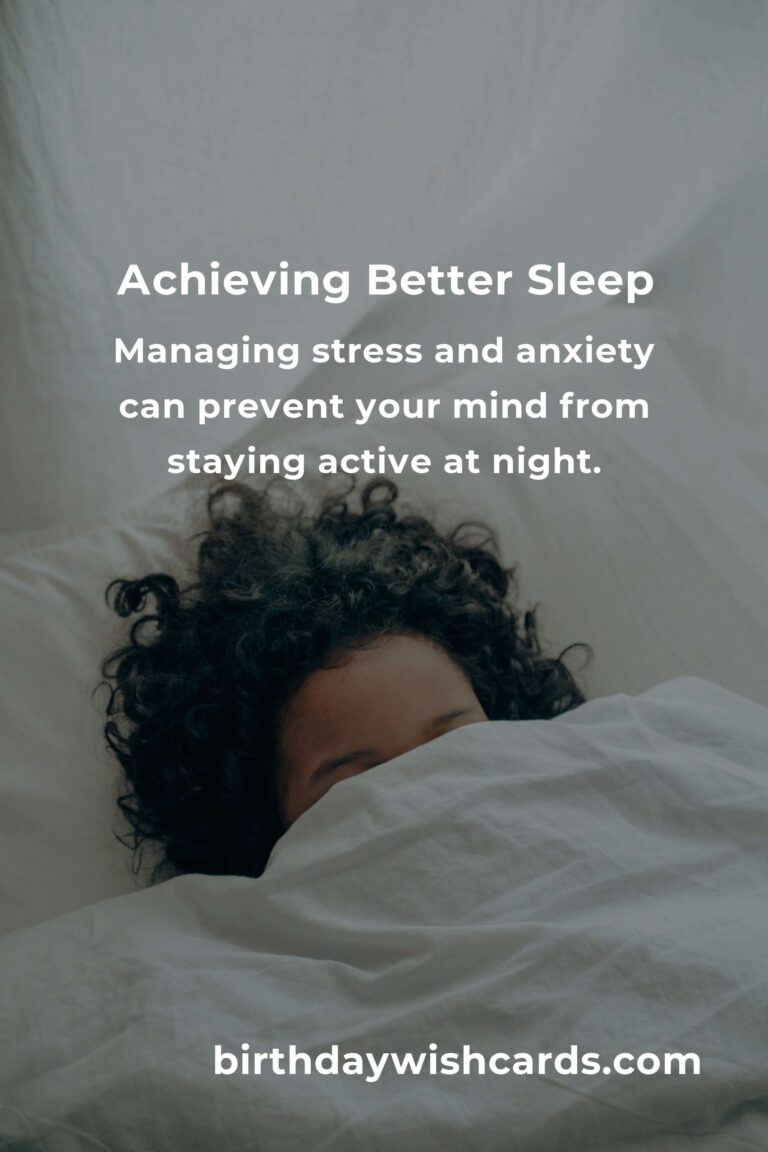
As we age, achieving a restful night’s sleep can become increasingly challenging. However, it is essential to maintain good sleep quality to support overall health and well-being, especially in your 50s. In this article, we will explore 19 effective tips to help you improve your sleep quality during this stage of life.
1. Establish a Consistent Sleep Schedule
Going to bed and waking up at the same time every day, including weekends, helps regulate your body’s internal clock. Consistency reinforces natural sleep-wake cycles, making it easier to fall asleep and wake up refreshed.
2. Create a Relaxing Bedtime Routine
A calming pre-sleep routine can signal your body that it’s time to wind down. Consider activities like reading, listening to soothing music, or practicing relaxation exercises before bed.
3. Optimize Your Sleep Environment
Ensure your bedroom is conducive to sleep by keeping it cool, dark, and quiet. Invest in comfortable bedding and consider blackout curtains or a white noise machine if necessary.
4. Limit Exposure to Screens
The blue light emitted by phones, tablets, and computers can interfere with melatonin production, a hormone crucial for sleep. Aim to turn off electronic devices at least an hour before bedtime.
5. Be Mindful of Caffeine and Alcohol
Caffeine and alcohol can disrupt your sleep cycle. Limit caffeine intake in the afternoon and avoid consuming alcohol close to bedtime to improve sleep quality.
6. Stay Physically Active
Regular physical activity can help you fall asleep faster and enjoy deeper sleep. Aim for at least 30 minutes of moderate exercise most days of the week, but avoid vigorous workouts close to bedtime.
7. Manage Stress and Anxiety
Stress and anxiety can keep your mind active at night. Practice relaxation techniques such as deep breathing, meditation, or yoga to calm your mind before bed.
8. Watch Your Diet
A healthy diet can promote better sleep. Avoid heavy or rich meals late in the evening, and consider foods that are known to support sleep, like those containing magnesium or tryptophan.
9. Consider Sleep Supplements
Supplements such as melatonin or valerian root may help improve sleep quality. Consult your healthcare provider before starting any new supplement regimen.
10. Evaluate Medication Effects
Some medications can interfere with sleep. If you suspect this, discuss alternatives with your doctor.
11. Keep a Sleep Diary
Tracking your sleep patterns and habits can help identify issues and patterns. Record factors like bedtime, wake time, and how many times you wake up during the night.
12. Address Sleep Disorders
Conditions like sleep apnea or restless legs syndrome can disrupt sleep. If you suspect a sleep disorder, seek professional evaluation and treatment.
13. Limit Naps
While naps can be beneficial, long or irregular ones can negatively affect nighttime sleep. If you need to nap, limit it to 20-30 minutes and avoid late afternoon naps.
14. Embrace Natural Light
Exposure to natural light during the day helps regulate sleep patterns. Spend time outdoors or let natural light into your home during daylight hours.
15. Stay Hydrated
Dehydration can disrupt sleep, so ensure you drink enough water throughout the day. However, limit fluid intake before bed to reduce nighttime bathroom trips.
16. Practice Mindfulness
Mindfulness practices can help clear your mind of stressors. Techniques such as focusing on your breath or body scan meditation can be particularly effective.
17. Try Aromatherapy
Scents like lavender and chamomile can promote relaxation. Use essential oils or scented candles in your bedtime routine for a calming effect.
18. Seek Professional Help if Needed
If sleep issues persist despite your efforts, consider consulting a sleep specialist. They can offer personalized advice and treatment options.
19. Stay Positive
Maintaining a positive outlook on your sleep habits can reduce anxiety about sleep and improve your overall sleep quality.
Incorporating these strategies can significantly enhance your sleep quality in your 50s, supporting your overall health and vitality. Remember, consistency and patience are key to developing healthy sleep habits.
Establishing a consistent sleep schedule helps regulate your body’s internal clock.
A calming pre-sleep routine can signal your body that it’s time to wind down.
Ensure your bedroom is conducive to sleep by keeping it cool, dark, and quiet.
The blue light emitted by electronic devices can interfere with melatonin production.
Regular physical activity can help you fall asleep faster and enjoy deeper sleep.
Managing stress and anxiety can prevent your mind from staying active at night.
A healthy diet can promote better sleep quality.
Supplements such as melatonin or valerian root may help improve sleep quality.
Tracking your sleep patterns can help identify issues and patterns.
Exposure to natural light during the day helps regulate sleep patterns.
#BetterSleep #SleepQuality #HealthySleep #SleepTips #Over50 #Wellbeing













